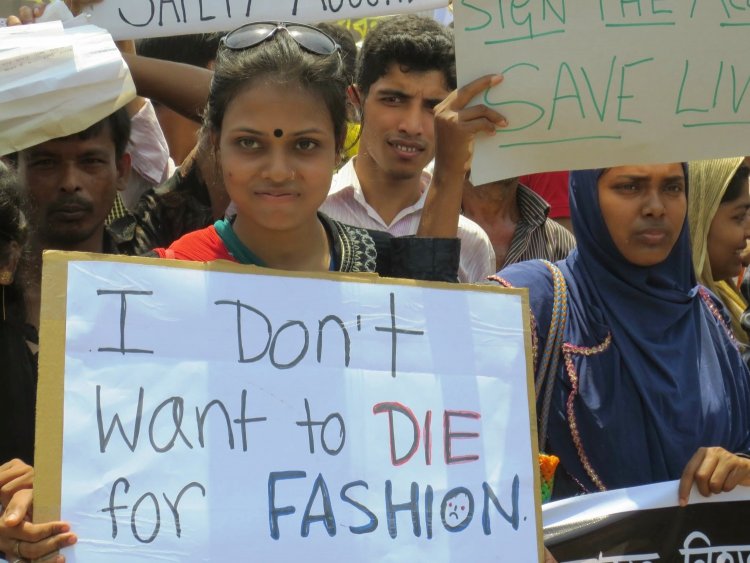Study Finds International Fashion Brands Paid Bangladeshi Garment Workers Below Cost of Production

13-01-2023
Héloïse Regnault de Montgon
East & South Asia Human Rights Researcher
Global Human Rights Defence
A study published on January 11, 2023 by the Aberdeen University and NGO Transform Trade found that major international retailers exploited Bangladesh garment industry workers (Islam et al., 2023). Of the 1,137 companies surveyed, 37 percent were found to engage in “unfair labour practices”. These practices included paying garment workers below production cost (Al Jazeera, 2023).
The study cited mass-market and “fast fashion” consumption as well as soaring prices due to inflation as the causes of these practices. Major international brands such as Inditex, H&M and Lidl were found to pay workers below costs of production (Islam et al., 2023). According to the study, this “impacted suppliers’ employment practices resulting in worker turnover, loss of jobs and lower wages” (Islam et al., 2023). One in five surveyed factories struggled to pay the minimum wage set at £2.30 in Bangladesh (BBC, 2023). The slowing demand caused by the COVID-19 pandemic combined with the energy crisis in Bangladesh contributed to economic instability in the country (Al Jazeera, 2023).
Failure to pay workers a minimum wage, and paying garment workers below production cost is a violation of their human rights. Article 7(a)(i) of the ICESC “recognize[s] the right of everyone to the enjoyment of just and favourable conditions of work which ensure, in particular: (a) remuneration which provides all workers, as a minimum, with (i) fair wages and equal remuneration for work of equal value without distinction of any kind” (UN Human Rights, 1976). Bangladesh ratified the ICESC in 1998 (United Nations, n.d.). International fashion brands paying workers below cost of production is a direct violation of Article 7 of the ICESC (UN Human Rights, 1976). This obligates them to pay better wages to Bangladeshi garment workers in their factories.
Some companies cited in the study, such as German supermarket chain Lidl, said it would take measures to “ensure that core social standards are complied with throughout the supply chain” (Al Jazeera, 2023).
Sources:
Al Jazeera. (2023, January 11). Global fashion brands exploiting Bangladesh workers: Study. Al Jazeera. https://www.aljazeera.com/news/2023/1/11/fashion-brands-paid-less-than-production-cost-to-bangladesh-firms
BBC. (2023, January 11). Fashion brands paid Bangladesh factories less than cost - report. BBC News. https://www.bbc.com/news/business-64204759.
Islam, M. A., Abbott, P., Haque, S and Gooch, F. (2023). Impact of Global Clothing Retailers' Unfair Practices on Bangladeshi Suppliers during Covid-19. University of Aberdeen, Aberdeen. https://www.abdn.ac.uk/news/documents/Impact_of_Global_Clothing_Retailers_Unfair_Practices_on_Bangladeshi_Suppliers_During_COVID-19.pdf
Solidarity Center. (2015). Thousands of garment workers and their unions rally on the one-year anniversary of the Rana Plaza collapse that killed more than 1,100 garment workers[Photograph]. Flickr. https://flic.kr/p/qJQpeh.
United Nations. (n.d) Ratification Status for ICCPR - International Covenant on Civil and Political Rights. UN Human Rights Treaty Bodies. https://tbinternet.ohchr.org/_layouts/15/TreatyBodyExternal/Treaty.aspx.
United Nations. (1976, January 3). International Covenant on Economic, Social and Cultural Rights. UN Human Rights. https://www.ohchr.org/en/instruments-mechanisms/instruments/international-covenant-economic-social-and-cultural-rights.

































